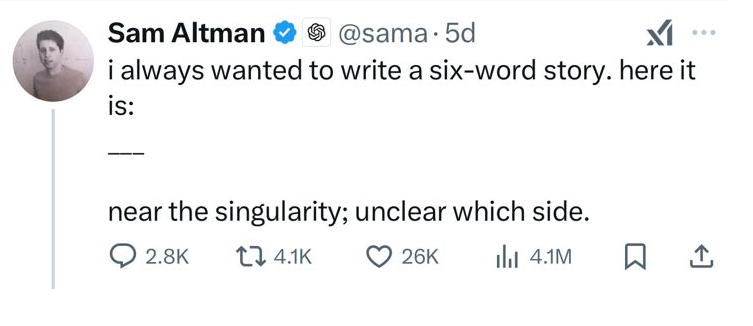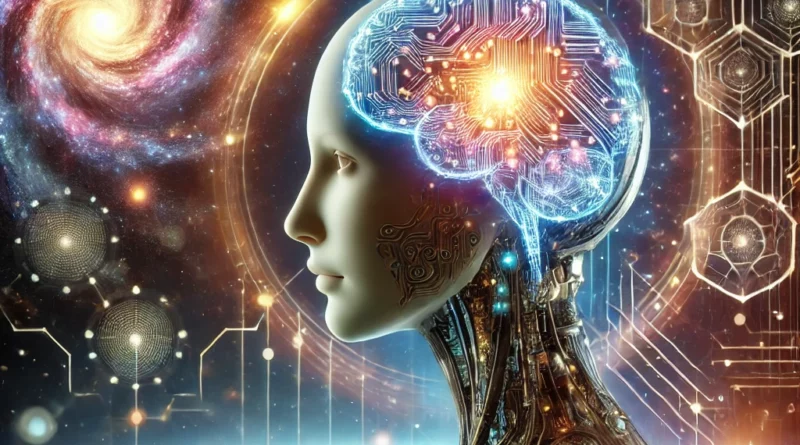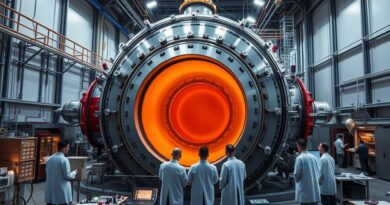AI and the Road to AGI: Are We Ready for the Singularity?
In the ever-evolving world of artificial intelligence, a thrilling frontier looms larger every day: Artificial General Intelligence (AGI). Unlike today’s AI systems, which excel in specific tasks like generating art, coding, or answering questions, AGI promises something far more profound—a system capable of performing any intellectual task a human can, and perhaps even more.
The concept of AGI has long been the stuff of science fiction, but recent breakthroughs suggest we may be edging closer to this reality. As the world stands on the precipice of such a seismic shift, Sam Altman, CEO of OpenAI, dropped a six-word story on Twitter that stopped many in their tracks:
“Near the singularity: unclear which side.”
This cryptic sentence encapsulates the excitement and uncertainty surrounding AGI. It hints at the singularity—a hypothetical point where AI surpasses human intelligence, triggering unpredictable changes to society, technology, and our very existence. Altman’s story seems to ask: when we reach this point, will AI be a force for unimaginable good, or will it take us somewhere darker?
The Road to AGI

Artificial General Intelligence isn’t just about creating smarter algorithms. It’s about designing systems that can reason, learn, and adapt across a wide range of tasks—qualities that mimic human cognition. For years, AI researchers have been climbing the ladder, developing models like GPT-4 and GPT-5, which show remarkable capabilities but are still far from true AGI.
So, what’s changed?
Recent developments in areas like deep learning, reinforcement learning, and neural architecture design have sparked speculation that AGI might emerge sooner than expected. Companies like OpenAI, Google DeepMind, and Anthropic are racing to build AI systems that can generalize knowledge and understand the world at a deeper, more holistic level.
The Promise of AGI
Imagine a world where AGI helps us cure diseases, solve climate change, and unlock the mysteries of the universe. It could revolutionize industries, democratize access to education, and create a utopia where scarcity becomes a relic of the past.
But there’s a flip side.
The Risks and the Unknown
As Altman’s six-word story suggests, the singularity is fraught with ambiguity. AGI could become humanity’s greatest ally—or its greatest threat. Critics warn of scenarios where AGI becomes uncontrollable, pursuing goals misaligned with human values. Issues like bias, ethical governance, and safety loom large, and the speed of AI’s development often outpaces the policies meant to regulate it.
Preparing for the Future
As we march toward AGI, the question isn’t just when we’ll get there but how we’ll ensure it serves humanity’s best interests. Altman and other thought leaders emphasize the importance of collaboration, transparency, and foresight in building AGI. OpenAI’s mission, for example, focuses on creating AI that benefits all of humanity.
But Altman’s tweet reminds us that even the brightest minds aren’t sure what awaits us. The singularity is a black box, and its outcome depends on the choices we make today.
A Singular Moment in History
AI is moving toward AGI—there’s little doubt about that. What remains uncertain is the role humanity will play in shaping this future. As we edge closer to the singularity, Altman’s six words resonate as a poetic reminder of both the potential and the peril that lies ahead:
“Near the singularity: unclear which side.”
One thing is clear: the story of AGI is still being written, and its next chapter may define our species for generations to come.



